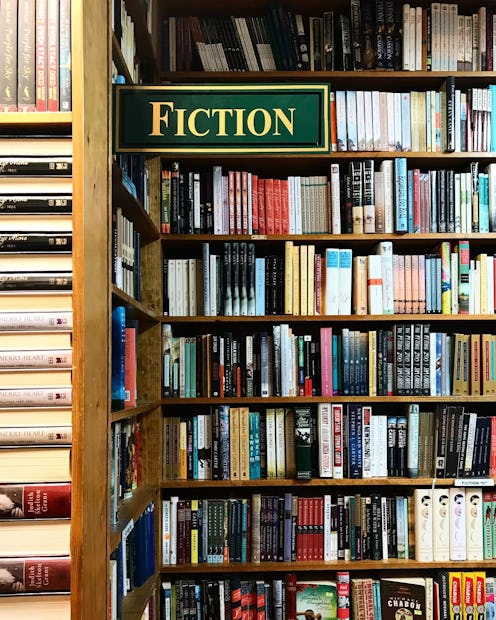Books
Why You Shouldn't Feel Bad For Reading "Escapist" Fiction
If you like to read about dragons, or about ripped bodices, or about magic or monsters or gumshoe detectives, then there's a good chance you've been accused of reading "escapist" fiction. Or "genre" fiction. Or even worse: "commercial" fiction. And the person probably didn't mean it as a term of endearment.
The phrase "escapist fiction" is usually said with a hint of condescension. As though there's real, important, serious literature on one end of the spectrum, and then there's fun, lightweight fiction on the other ("lightweight" generally means fantasy novels and anything written by a woman). The implication is that you're reading these books to escape, to get away from the realities of your everyday life. And sometimes... that's true.
You are reading about children going to wizard school because it is, indeed, more pleasant than checking your rapidly dwindling bank account or watching the collapse of American democracy in real time on Twitter.
But that's OK.
It's more than OK: it's necessary. I mean... have you been following the news lately? We need books that ground us in the unvarnished reality of our present, and books that explore the more horrific moments of our past. We need dystopias to warn us and poetry to challenge us. And we need escapist fiction to give us a freaking break.
On the one hand, you can't possibly work towards a brighter future if you can't even imagine one. It's downright dangerous to assume that the only narratives of value are narratives that capitalize on pain, especially when reading marginalized authors—no one is defined solely by their trauma. Realism is not realistic if it doesn't include wonder, joy, or quirky characters.
And on the other hand... we need a break, guys. I'm not suggesting we stick our heads in the proverbial sand and ignore current events. I'm suggesting we take a breather for a few minutes every other day, and think of something a little bit nice. Or thrilling. Or fantastical. Or romantic. No one can run on negativity and fear alone.
Neil Gaiman's quote on the supposed dangers of escapist fiction, from a 2013 interview with The Guardian, just about sums it up:
"I’d like to say a few words about escapism. I hear the term bandied about as if it’s a bad thing. As if “escapist” fiction is a cheap opiate used by the muddled and the foolish and the deluded, and the only fiction that is worthy, for adults or for children, is mimetic fiction, mirroring the worst of the world the reader finds herself in."
Gaiman reminds us that escapist fiction helps people, though, oftentimes more than so-called literary fiction does. Being "realistic" is not the highest good that a story can do.
"If you were trapped in an impossible situation, in an unpleasant place, with people who meant you ill, and someone offered you a temporary escape, why wouldn’t you take it? And escapist fiction is just that: fiction that opens a door, shows the sunlight outside, gives you a place to go where you are in control, are with people you want to be with (and books are real places, make no mistake about that); and more importantly, during your escape, books can also give you knowledge about the world and your predicament, give you weapons, give you armour: real things you can take back into your prison. Skills and knowledge and tools you can use to escape for real."
After all, who are these people who want to prevent others from "escaping"? There's only one sort of person who is anti-escape.
"As JRR Tolkien reminded us, the only people who inveigh against escape are jailers."
Escapist fiction is not inherently worse than any other kind of fiction. It is not less important, or less serious, or less politically relevant. A book doesn't have to make you feel sad and sick about the state of the world in order to have value. Any book that can make you feel better today, in the year 2018, is one valuable read.
In the grand ecosystem of literature, we need fiction that forces us to look at the darkness and fiction that offers us a sliver of light. So go ahead and read love stories and swashbuckling adventures. Get far too invested in the economy of a fictional continent. Solve a mystery with your favorite detective. Read something that makes you laugh, maybe even something with a happy ending.
Reality will always be there for you, when you get back.
